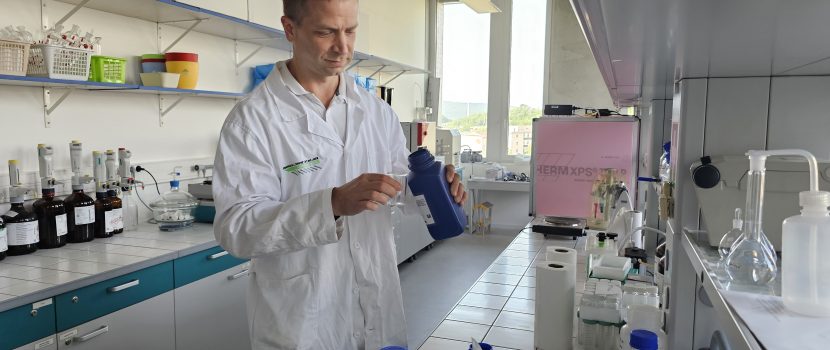
UJEP Faculty of Environment and BASF SE Collaborate on Asphalt Recycling
The Faculty of Environment at UJEP and the Asphalt Performance Group of BASF SE have recently signed a memorandum of cooperation focused on innovative methods for recycling asphalt mixtures used in road construction. This strategic partnership aims to explore and implement new recycling technologies that have not yet been commercially deployed and could move the Czech construction industry toward greater sustainability.
According to statistics (EAPA 2023), total production of hot and warm mix asphalt in the Czech Republic in 2023 reached approximately 7.0 million tons. Unfortunately, a significant portion of milled asphalt—about 30%—ends up in landfills. In comparison, Germany landfills only 1%. This unfavorable situation not only burdens the environment but also represents a missed economic opportunity.
“The goal of the research is to determine which types of asphalt—modified with various polymers and additives—are most suitable for recycling in terms of quality and quantity. The study will also focus on other aspects, such as energy efficiency and reduced emissions, which can positively impact worker health,” explains Roman Otáhal, who is conducting this research as part of his doctoral studies and works at BASF spol. s r.o. The recycling process will also involve the use of an additive derived from renewable resources to reduce the amount of new asphalt binder required.
The new technology is expected to be tested in real-world conditions. On a selected road section in the Czech Republic, layers of both new and recycled asphalt will be laid. Both types will be exposed to the same traffic load and climatic conditions to allow for a direct comparison of their properties. This testing phase requires a comprehensive approach, and collaboration has already been established with major companies and universities in the Czech Republic.
“In the laboratory, we will study the chemical processes of aging, rejuvenation of the asphalt, and the modification of the mixture,” adds Roman Otáhal. The result could be a type of asphalt and a recycling technology that is both economically viable and more environmentally friendly.
“Cooperation with the Asphalt Performance Group of BASF opens up new opportunities for us not only in research but also in the practical application of results and establishing further collaborations in the field of sustainable technologies, which is one of the core pillars of our faculty. At the same time, we are able to share know-how and jointly utilize infrastructure, which accelerates our research,” says Assoc. Prof. Jiří Orava, Head of the Department of Environmental Chemistry and Technology at the Faculty of Environment, UJEP. He is also the supervisor of Roman Otáhal and the guarantor of the doctoral study program Environmental and Biomaterial Sciences, within which this research is being conducted.